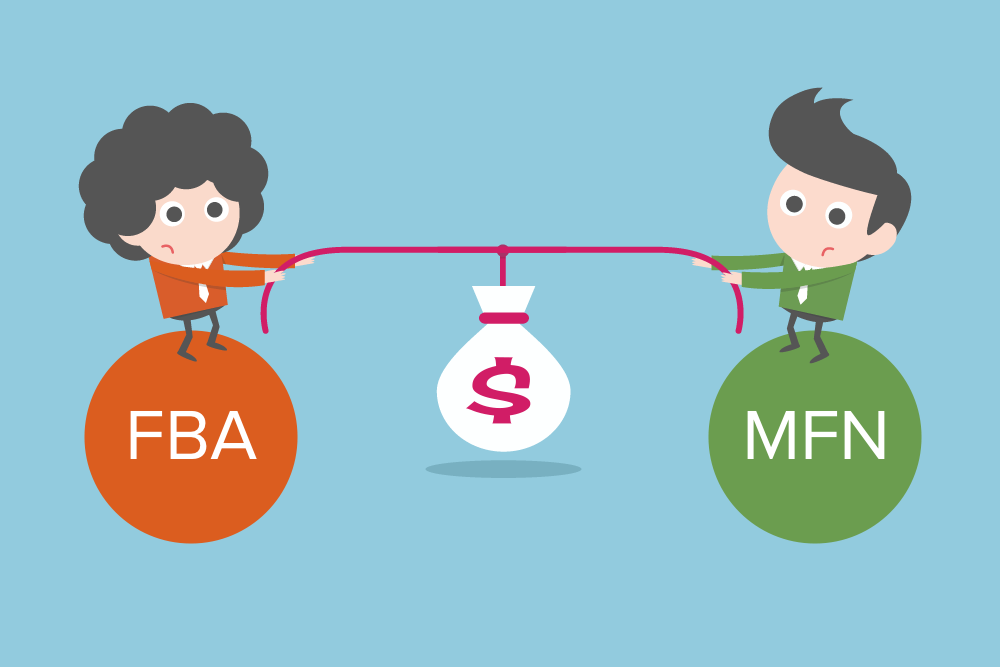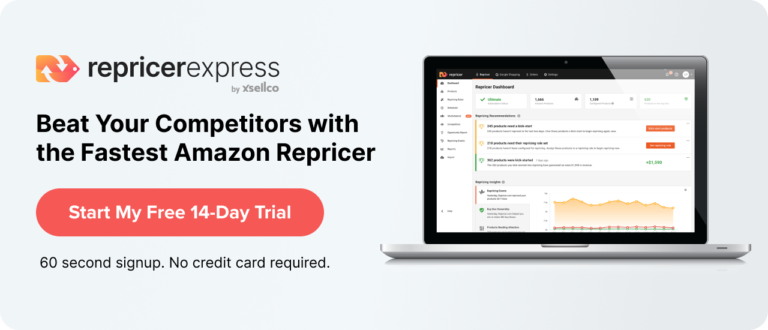You’ve heard of FBA (Fulfillment by Amazon), but have you heard of MFN or (Merchant Fulfilled Network)? Probably, but just in case you’re not sure of all the differences or which one’s right for you, let us help you out.
How MFN is Different From FBA
By now, you know FBA is where you pay Amazon a little bit of money and they essentially do everything for you after an order’s been placed, everything as in packaging and shipping the product and handling the customer support.
MFN, on the other hand, puts the ball entirely in your court. You’re in control of the inventory (like where to keep it), you’re in control of what materials are used to package and ship the item in (and how much to pay for it), and you’re in control of making your customers sleep happily. You also don’t have to pay Amazon a portion of the product’s price for the ‘seller fee’, but get to keep that cash in your bank account.
However, there are some big differences between the two. Using FBA tends to lead to a higher chance of winning a Buy Box because one of the thought-of factors in getting one is shipping time, as FBA products are Prime-eligible (and Prime buyers tend to spend more as well). On the other hand, the money you save by going the MFN route means you don’t have to deal with delayed payments, fees to Amazon for handling everything, or shipping costs to get products to a fulfilment centre.
There’s also the issue of personalisation. If you use MFN, you can better establish your own brand because you’re in control of the selling process every step of the way. The converse of that is when you use FBA, you don’t have to put in the time of building a brand from the ground up.
Maybe you’re still on the fence at this point, so let’s take a look at the actual work involved in fulfilling products. If you sell a relatively small number of items, managing the packaging and shipping yourself (MFN) can be fairly simple and straightforward. But if you deal in dozens and dozens of items and do a fairly brisk business, then you’ll be spending a lot of time — time that could be otherwise spent elsewhere — on packaging and shipping. And if anything goes wrong, do you prefer to handle it your own way or let someone else take the reins?
Related: Amazon FBM vs Amazon FBA
How to Decide Which One is Right for You
Let’s start off with FBA. This is probably the better option for you if:
- You sell a lot, and we mean a lot, of things. It’s just not worth the time and effort to fulfil all the products yourself. And even if you somehow did carve out time for that, the likelihood of slipping up and making a mistake on something is greater because your mind is busy and divided among so many different items.
- You have fairly large margins on your product and can easily stomach the seller fees Amazon takes for themselves. They tend to take 15-18% for themselves, so if you decide you can afford that and still make a good profit, then sign up.
- You want to appeal more to the Prime buyers. Using FBA automatically makes your products Prime-eligible, so you don’t have to do the grunt work of earning it. It’s already there. And Prime tends to lead to a better chance of winning a Buy Box, which every Amazon seller values.
But on the other end of the scale, if you find yourself nodding along at these following points, then MFN might be the better option for you.
- You sell things on a smaller scale. If you deal in, say, rare books, then it could be totally feasible to fulfil on your own. Plus, if you sell rare books, then you have better control over how to package them so they arrive just as safely and in the condition you intended.
- Maybe your margins aren’t so padded and you’d like to capitalise on every bit of money that comes your way. If you really can’t afford to cut into your margins any more without sacrificing the long-term benefits, then do the fulfilment yourself and hold onto your margins.
- You have a vested interest in growing your brand exactly the way you want, whether it’s using your own packing paper and labels or treating each customer in a different way based on their personality. MFN lets you do this, while FBA makes it a little trickier because it’s out of your hands.
Merchant Fulfilled Amazon Shipping Explained
Check out the video below from a third-party Amazon seller (and RepricerExpress user) explaining more about how to use MFN in your Amazon business.
Final Thoughts
No matter which option you choose, FBA or MFN, you’ve absolutely got to have a repricer to make your product costs as attractive as possible. Each sale matters, whether it’s one of 10 or one of 1,000. And to help you out, RepricerExpress is tops; there’s no debate or need for lists of pros and cons. Not convinced? Try RepricerExpress free for 15 days, no credit card needed.



